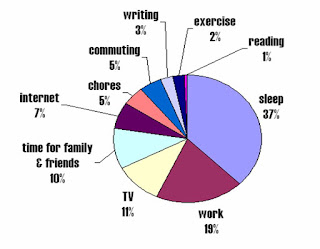A contest of ideas
So General Election 2020 is over. Interesting results, and I look to seeing how it plays out over the next 5 years. I thought it was one of the most civil contests of ideas I've seen - like, ever! When the Ivan Lim episode broke out, I didn't see many of the opposition parties trying to make a big deal of it. When the Raeesah Khan episode broke out, I didn't see many of the ruling party jump all over it either. When someone tried to drag Murali Pillai's family into the fray, Chee Soon Juan said, let's rise above that. At the end of the election, PM even made a particular point of Pritam Singh being formally appointed Leader of the Opposition and provided adequate resources and staffing to discharge those responsibilities.
We did still have some people try to sling mud, but honestly it was a couple of disgruntled overseas commentators or over-enthused citizen vigilantes (or Stompers), posting grumpy "analyses", allegations or snapshots, rather than the politicians themselves. As a country, I think we deserve a pat on the back for somehow managing to organise a reasoned contest of ideas. We don't have to necessarily agree on everything, but we can contest them robustly, yet reasonably.
This is quite an achievement, in a world increasingly prone to generalisation and name-calling. Donald Trump's supporters were all lumped into what Hilary Clinton disdainfully called "a basket of deplorables". Conversely, the sitting US President has a penchant for name-calling his opposition "the radical left". Both approaches turn the debate into an "us vs them" contest.
One example of this is the increasing trend in the US, particularly in the media, is to label supporters of the Republican party "evangelicals", as if that were a bad word. This is particularly dangerous, because it tars all Christians. In case you don't know, the word "evangelical" simply means one who believes the gospel and the Bible. Therefore every Christian is necessarily evangelical. If you don't consider yourself evangelical, then that means you don't believe what Jesus says, and what the Bible says, and - hard truth - by definition, you can't be a Christian.
Using "evangelical" as a derogatory term is therefore incredibly divisive. It makes the debate one of *identity* and not one of *ideas*. It declares - all you evangelicals are anti-science, red-neck, uneducated. It puts everyone in the same basket, making the debate "us vs them". A cynically political thing to do, because tribalism is a quick and effective way to garner votes. It's also sadly ironic that the people using the term "evangelical" as an epithet are the very same people who rightly champion non-discrimination for the African-American identity, in the recent Black Lives Matter protests.
As Christians, we can be equally guilty of such divisive generalisations. Most commonly, we call others sinners, pointing out the speck in their eye, without first taking the plank out of our own eye. Timothy Keller calls this the "elder brother" syndrome, after the elder brother in the parable of the prodigal son, who refused to celebrate his younger brother's return to the father after realising his mistakes.
Elder brother-ness is a super-irritating habit. I know because I am super-guilty of it and keep having to slap myself to stop it. It's hard to recognise in ourselves, hard to be humble enough to admit that we're doing it, hard to change even if we want to. Doesn't mean we don't courageously speak up against wrongs; doesn't mean we don't preach the wonderful good news of Jesus - right is still right, wrong is still wrong, truth is still truth. But it does mean we admit we're not paragons of virtue, we are just as much of a sinner as everyone else, and we love people into agreement, not harangue them into submission.
So the next time we catch ourselves thinking, or posting on social media some snarky self-satisfied remarks like "it's the older generation scared to let go", "it's the younger strawberry generation", "it's the radical liberals" or "it's the uneducated religious conservatives" - let's humbly check ourselves. Politicians might invoke tribalism to win votes, but why should we? And look - even our politicians in Singapore managed to avoid that - that's a pretty good example for us to follow. Let that become part of our particular brand of Singaporean exceptionalism.
Good words do more than hard speeches, as the sunbeams, without any noise, will make the traveler cast off his cloak, which all the blustering winds could not do, but only make him bind it close to him.
Robert Leighton (Archbishop of Glasgow) 1611-1684









Comments